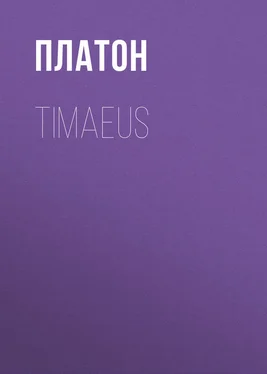The Hesiodic and Orphic cosmogonies were a phase of thought intermediate between mythology and philosophy and had a great influence on the beginnings of knowledge. There was nothing behind them; they were to physical science what the poems of Homer were to early Greek history. They made men think of the world as a whole; they carried the mind back into the infinity of past time; they suggested the first observation of the effects of fire and water on the earth's surface. To the ancient physics they stood much in the same relation which geology does to modern science. But the Greek was not, like the enquirer of the last generation, confined to a period of six thousand years; he was able to speculate freely on the effects of infinite ages in the production of physical phenomena. He could imagine cities which had existed time out of mind (States.; Laws), laws or forms of art and music which had lasted, 'not in word only, but in very truth, for ten thousand years' (Laws); he was aware that natural phenomena like the Delta of the Nile might have slowly accumulated in long periods of time (Hdt.). But he seems to have supposed that the course of events was recurring rather than progressive. To this he was probably led by the fixedness of Egyptian customs and the general observation that there were other civilisations in the world more ancient than that of Hellas.
The ancient philosophers found in mythology many ideas which, if not originally derived from nature, were easily transferred to her – such, for example, as love or hate, corresponding to attraction or repulsion; or the conception of necessity allied both to the regularity and irregularity of nature; or of chance, the nameless or unknown cause; or of justice, symbolizing the law of compensation; are of the Fates and Furies, typifying the fixed order or the extraordinary convulsions of nature. Their own interpretations of Homer and the poets were supposed by them to be the original meaning. Musing in themselves on the phenomena of nature, they were relieved at being able to utter the thoughts of their hearts in figures of speech which to them were not figures, and were already consecrated by tradition. Hesiod and the Orphic poets moved in a region of half-personification in which the meaning or principle appeared through the person. In their vaster conceptions of Chaos, Erebus, Aether, Night, and the like, the first rude attempts at generalization are dimly seen. The Gods themselves, especially the greater Gods, such as Zeus, Poseidon, Apollo, Athene, are universals as well as individuals. They were gradually becoming lost in a common conception of mind or God. They continued to exist for the purposes of ritual or of art; but from the sixth century onwards or even earlier there arose and gained strength in the minds of men the notion of 'one God, greatest among Gods and men, who was all sight, all hearing, all knowing' (Xenophanes).
Конец ознакомительного фрагмента.
Текст предоставлен ООО «ЛитРес».
Прочитайте эту книгу целиком, купив полную легальную версию на ЛитРес.
Безопасно оплатить книгу можно банковской картой Visa, MasterCard, Maestro, со счета мобильного телефона, с платежного терминала, в салоне МТС или Связной, через PayPal, WebMoney, Яндекс.Деньги, QIWI Кошелек, бонусными картами или другим удобным Вам способом.









